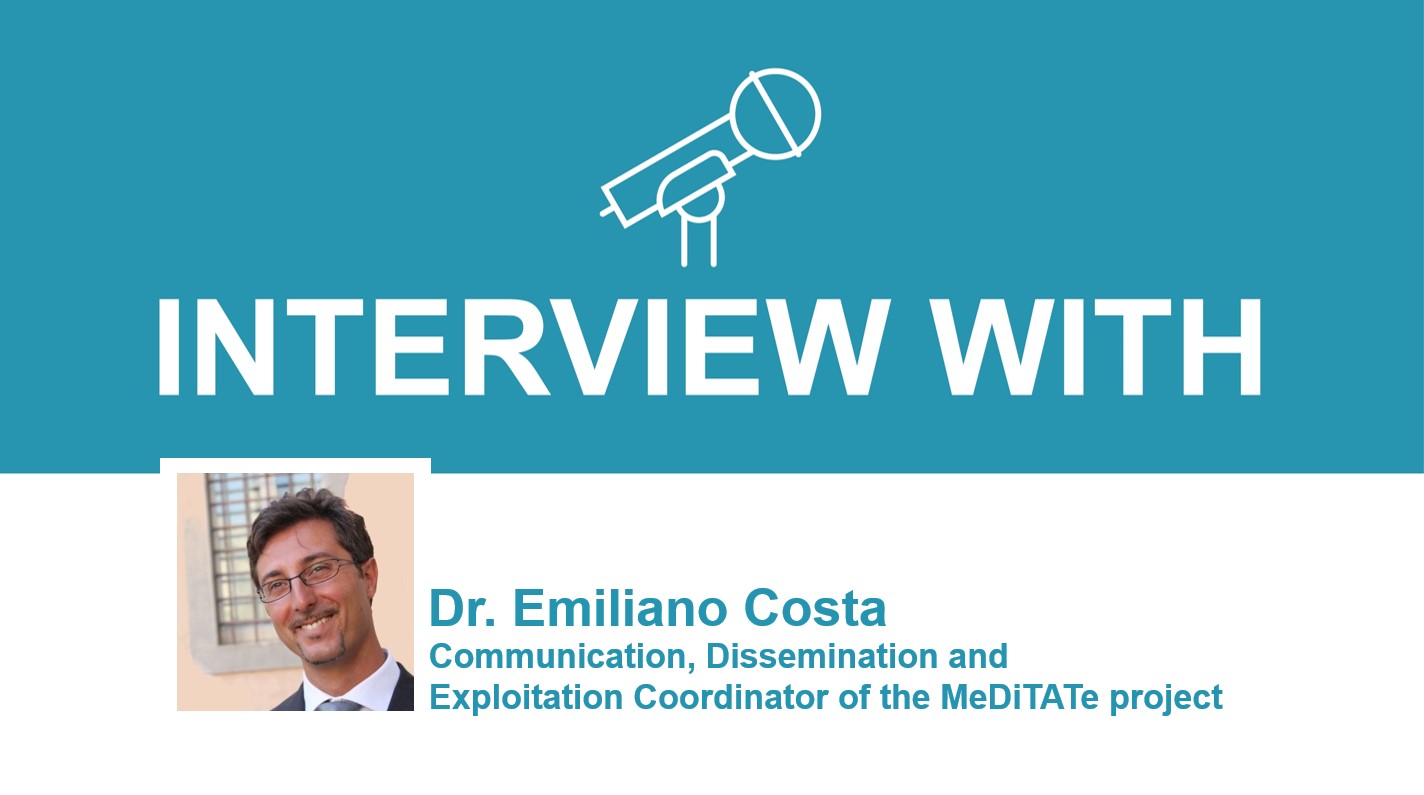An interview with Dr. Emiliano Costa, Communication, Dissemination and Exploitation Coordinator of the MeDiTATe project

We had a talk with Dr. Emiliano Costa, a member of the Supervisory Board of the MeDiTATe project and Principal Engineer at RINA. During his 15+ years of experience, he participated in both Italian and European co-funded research projects mainly in coordination and simulation-based tasks. In MeDiTATe he has a three-fold role: Scientist-in-Charge of RINA, Industrial Supervisor of ESR 07 and ESR 12 and Communication, Dissemination and Exploitation Coordinator.
What about RINA’s experience in MSCA projects? Do you think it is important for large companies to be involved in EU-financed projects like MeDiTATe?
As far as I know, this is one of the very first experiences of RINA in MSCA projects and, since the proposal stage, it was very challenging due to the large number of beneficiaries and partners involved. Large companies like RINA can definitively benefit from projects like MeDiTATe because, as it is a further opportunity to “virtuously contaminate each other” in terms of scientific knowledge and professional experience. Apart from that, we continue enjoying a longstanding collaboration with several of the players of the consortium.
How can the vision of a large company meet the scope of the MeDiTATe project?
In the end, one of the main objectives of MeDiTATe is to help ESRs in becoming high-profile professionals and scientists from whom the world community will benefit in the future. This is the same approach of the continuous improvement culture embraced by RINA to empower employees.
How do you think ESRs can benefit from the industrial approach that RINA proposes?
Together with the colleagues involved in MeDiTATe we have been trying to share first the RINA’s experience on communication and managerial topics creating, at least I hope, a positive environment to work in.
From a technical point of view, the presence and influence of private industrial entities like RINA are definitively an added value for ESRs. Our industrial-based thinking typically solicits ESRs to be more pragmatic in their daily work trying to ground their professional efforts in view of producing effective and exploitable solutions and applications.
Can you tell us something about the activities of the ESRs that you are mentoring?
Both researchers started their activities by deepening their knowledge in computational modelling and simulations in the cardiovascular field. They were extremely committed to their training programme and, now, they are applying the acquired knowledge in the area of medical digital twins, on which they are presenting papers at congresses and submitting articles in scientific journals.
Please, leave a message for our readers.
Be curious, keep informed and have a positive attitude because there is always something to learn from everyone you find along the life path. Best, Emiliano.
